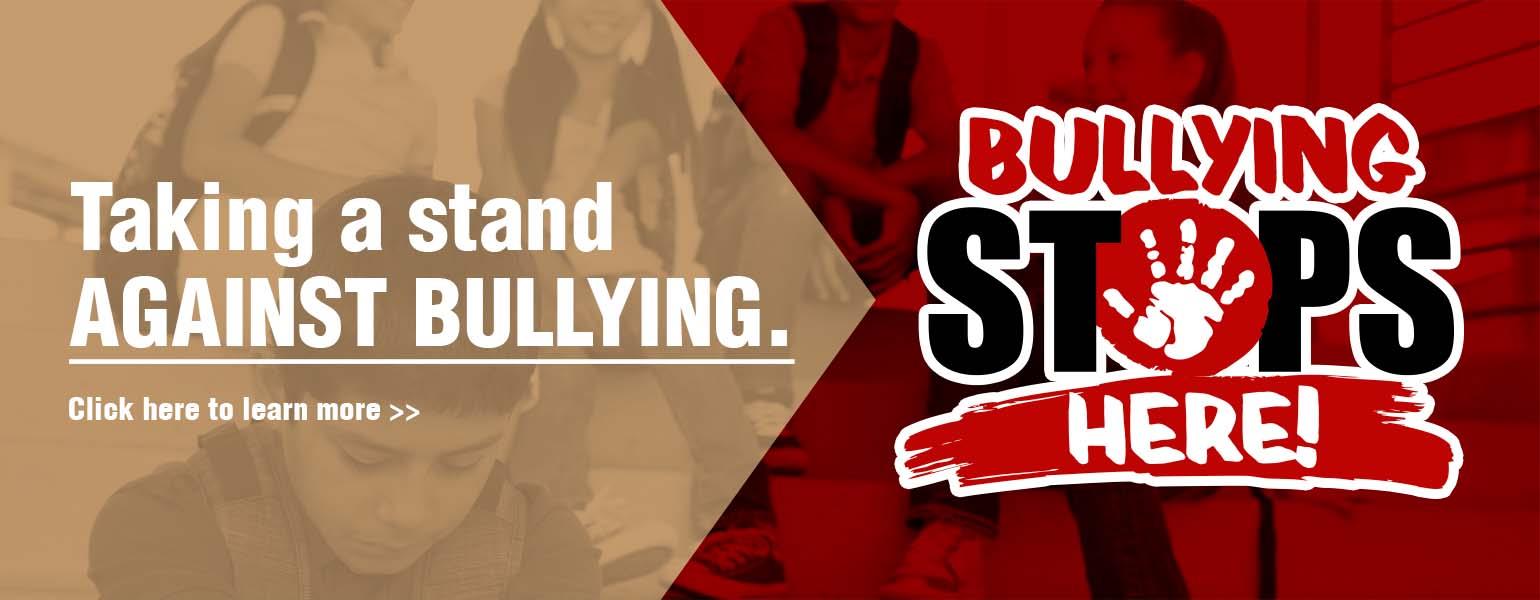
Bullying, harassment, and hazing are detrimental to the well-being of students and greatly hinder them from reaching their true academic potential. The DeKalb County School District’s” BULLYING STOPS HERE!” Awareness Campaign endeavors to stop student bullying, harassment, discrimination, and hazing in schools. This comprehensive approach to addressing these issues seeks to educate, not only students, but the entire community of stakeholders.
Students and local school personnel are asked to sign a Bullying Awareness Pledge. Students pledge that they will refrain from participating and/or supporting bullying, harassment, or hazing. In addition, local school personnel pledge to immediately address bullying, harassment, and intimidation, assist in its prevention and to model appropriate behavior for their students. In this ongoing campaign, schools focus each month on promoting awareness to staff, students, parents, and the community on topics related to bullying, harassment, and hazing. These topics include cyberbullying and cyberethics, bystander response, reporting incidents, kindness, friendship, bias, and respect.
To report student bullying, harassment or hazing, please contact your school or complete and submit the Reporting Form below.
To report weapons, violence, drugs, bullying, harassment, discrimination or a significant threat, call 1-888-475-0482
Bullying
BULLYING is unwanted, aggressive behavior among school aged children that involves a real or perceived power imbalance. The behavior is repeated, or has the potential to be repeated, over time. Bullying includes actions such as making threats, spreading rumors, attacking someone physically or verbally, and excluding someone from a group on purpose Stopbullying.gov. No single act of bullying, harassment or intimidation will be ignored.
There must be a real or perceived imbalance of power whereby the bully seeks to impose authority and harm on an innocent student.
Harassment
HARASSMENT & BULLYING are terms that tend to be used synonymously but they are not always the same thing. Harassment is unwelcome conduct based on real or perceived race, color, national origin, sex, religion, disability sexual orientation, gender identity or gender expression.
It may take many forms, including verbal acts and name-calling; graphic and written statements, which may include use of cell phones or the Internet; or other conduct that may be physically threatening, harmful, or humiliating.
Harassment does not have to include intent to harm, be directed at a specific target, or involve repeated incidents. Unlike bullying, harassment does not always involve a real or perceived power imbalance. Harassment creates a hostile environment when the conduct is sufficiently severe, pervasive, or persistent so as to interfere with or limit a student’s ability to participate in or benefit from the services, activities, or opportunities offered by a school.
Hazing
HAZING is thought by some to be a college fraternity/sorority “thing”. To the contrary, incidents of hazing occur in K-12 schools throughout the country and can be equal to or more harmful than what happens on university/college campuses. As institutions of higher learning are stepping up enforcement on this type of behavior, it is prudent that we partner together to eradicate hazing in our schools. The difference between hazing and bullying is subtle. The same power dynamics are involved. The same intimidation tactics are used. The same second-class citizenship issues arise. The only real difference between bullying and hazing is that bullying can happen to anyone, anytime and is used as a means to exclude someone. Hazing is an instrument of including people by having them earn their way into a group or to raise their level or status in the group. Bullying is about exclusion; hazing, inclusion. Hazing can occur in any school organization; including, but not limited to athletic teams, band, student clubs, cheerleading, dance teams and other extracurricular student organizations.
Bullying, harassment, discrimination and hazing must be addressed immediately. However, it cannot be addressed if it is not reported. Students, parents and stakeholders are urged to report these incidents to school personnel. Familiarize yourself with the policy and procedures and know what steps to take.
Let’s work together to stamp out bullying, harassment, and hazing. We must do this together!
Please complete the Parent/Guardian/Stakeholder Pledge and discuss with your child and/or community!
